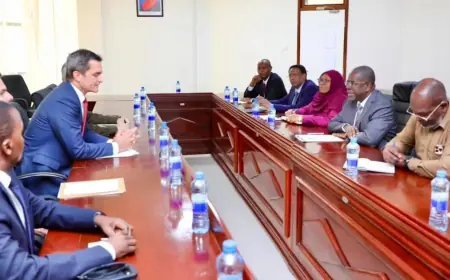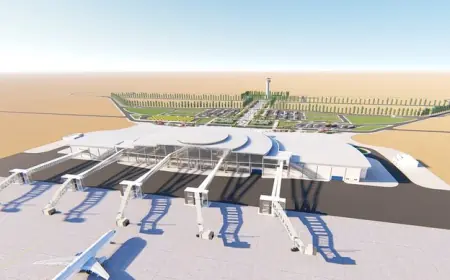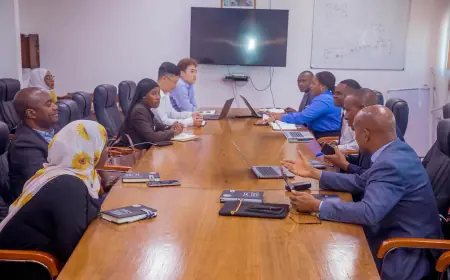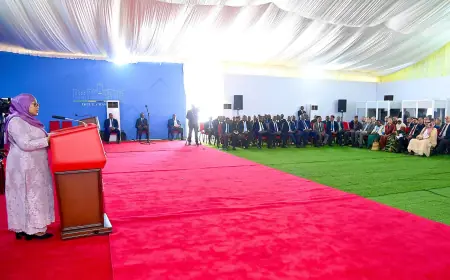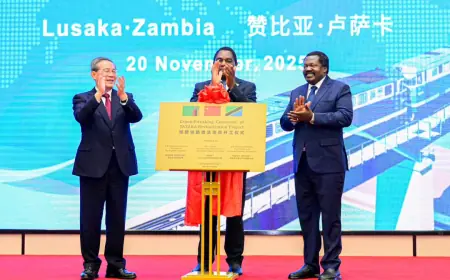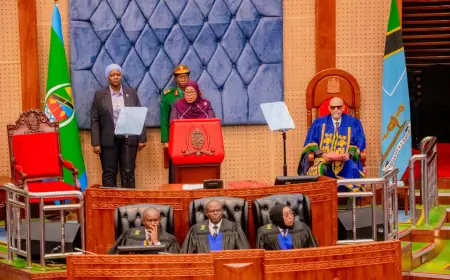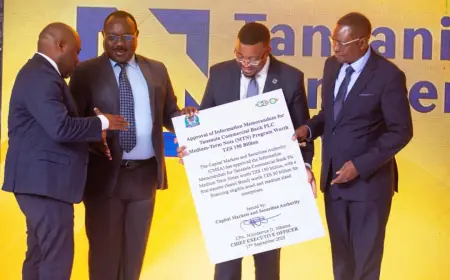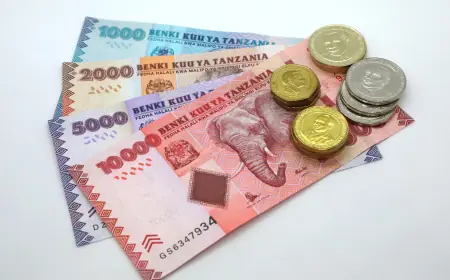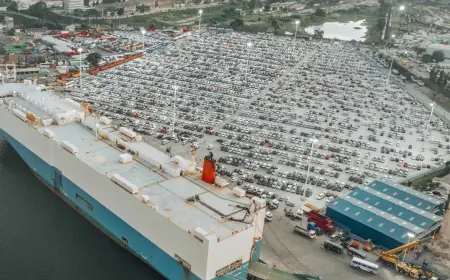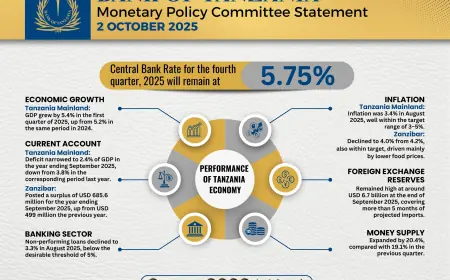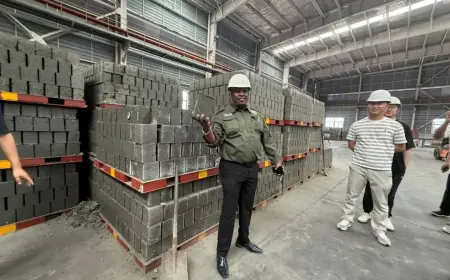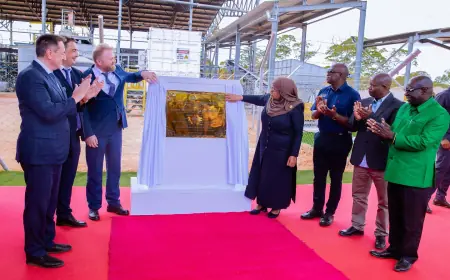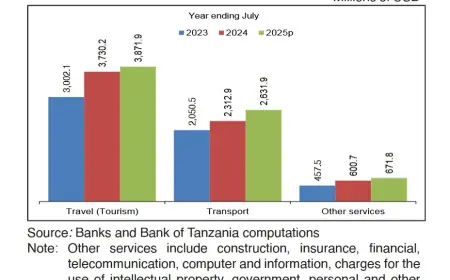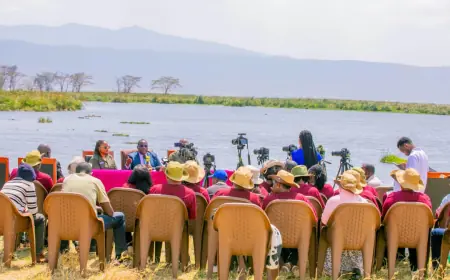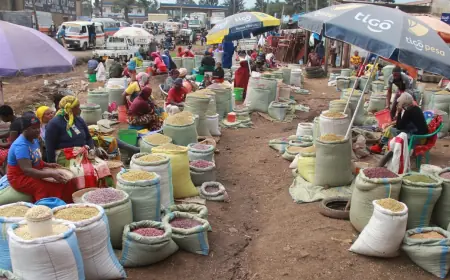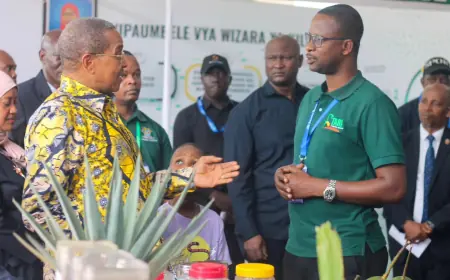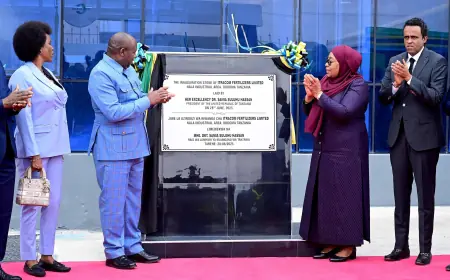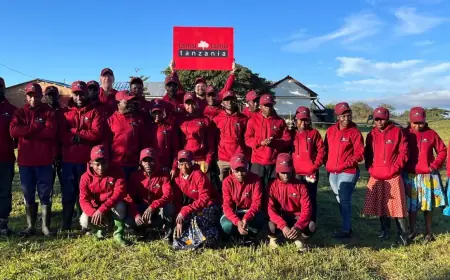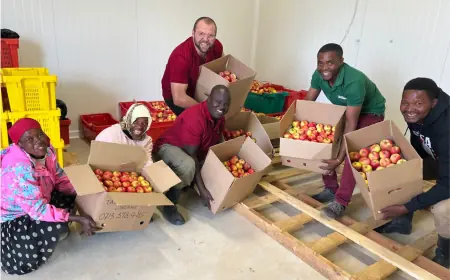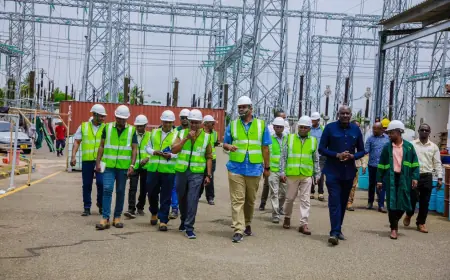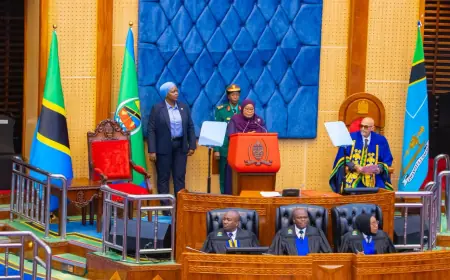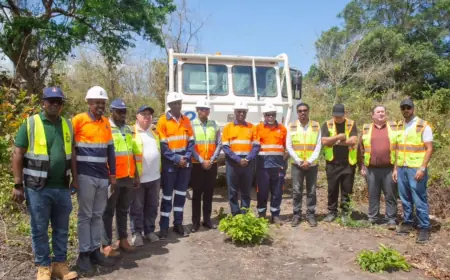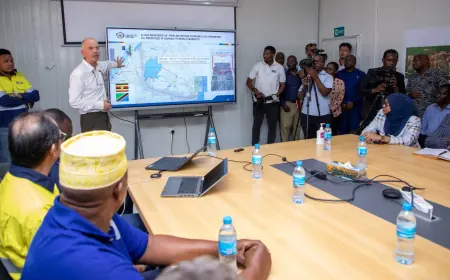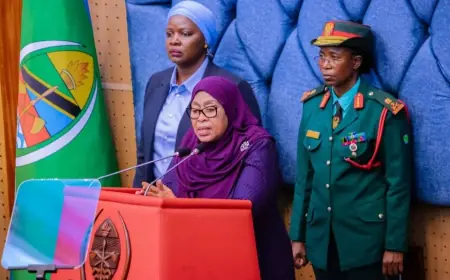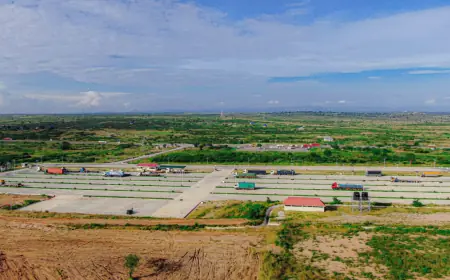Training equips Tanzanian entrepreneurs to overcome non-tariff barriers under AfCFTA
While tariff reductions under the AfCFTA, the East African Community (EAC), the Southern African Development Community (SADC) and the Tripartite Free Trade Area have been celebrated as a major step towards integration, non-tariff barriers remain a formidable obstacle

Dar es Salaam. At a time when Africa is striving to deepen economic integration through the African Continental Free Trade Area (AfCFTA), Tanzanian entrepreneurs are being urged to prepare themselves for both the opportunities and the challenges that come with operating in a continent-wide market of more than 1.4 billion people.
This message was underscored in Dar es Salaam where a two-day training on non-tariff barriers (NTBs) concluded on September 12, bringing together traders, business associations, and government institutions.
The sessions, coordinated by the Tanzania Chamber of Commerce, Industry and Agriculture (TCCIA) in partnership with the Ministry of Industry and Trade and supported by TradeMark Africa, sought to equip participants with tools to navigate the regulatory, legal and procedural hurdles that continue to undermine Africa’s free trade ambitions.
Tackling barriers beyond tariffs
While tariff reductions under the AfCFTA, the East African Community (EAC), the Southern African Development Community (SADC) and the Tripartite Free Trade Area have been celebrated as a major step towards integration, non-tariff barriers remain a formidable obstacle.
These barriers include cumbersome customs processes, inconsistent regulations, lack of recognition of standards, and limited access to trade-related information.
According to TCCIA, such hurdles not only delay shipments and raise costs but also discourage small and medium-sized enterprises (SMEs) from venturing beyond national borders.
“Tanzania has many enterprises with products that could compete across Africa—from agricultural produce and processed foods to textiles and manufactured goods.
But if these enterprises spend days at border posts or grapple with unclear documentation requirements, their competitiveness suffers,” said one TCCIA official during the training.
Institutional cooperation critical
The training brought together officials from institutions such as the Tanzania Revenue Authority (TRA), the Tanzania Bureau of Standards (TBS) and the Business Registration and Licensing Agency (BRELA), alongside private-sector operators.
TRA official Ms Wasila Iddi explained that the sessions had helped participants understand how different agencies coordinate to ensure smoother trade facilitation.
“This will help reduce unnecessary disruptions and speed up service delivery,” she said.
However, she noted that reforms needed to be continuous to keep pace with changes in commerce and technology.
“Government agencies should sustain awareness programmes for the private sector on trade procedures and opportunities in Africa’s free trade zones. This is essential to increase Tanzanian participation in the fast-growing continental market,” she added.
Lessons from the field: Tanzanian businesses speak out
For many Tanzanian businesspeople, non-tariff barriers are not an abstract concept but a lived reality.
Take the case of Sunrise Agro Processors, a Dar es Salaam-based company that exports maize flour and sunflower oil to the Democratic Republic of Congo (DRC) and Zambia.
According to the firm’s operations manager, consignments often face delays at Kasumbalesa border post due to varying sanitary and phytosanitary (SPS) standards.
“We sometimes wait three to five days because officials demand additional certification, even when our goods meet EAC standards. This raises storage costs and affects delivery schedules,” he explained.
Similarly, Kilimanjaro Fresh Flowers, which exports cut flowers to Rwanda and Burundi, has encountered difficulties with inconsistent interpretation of customs rules.
“Our trucks carrying flowers have been stopped for hours while officials debate documentation requirements. For perishable goods, such delays translate into direct financial losses,” said the company’s export coordinator.
In the fisheries sector, Lake Victoria Fish Exports, a Mwanza-based firm, reports facing multiple inspections along transit routes to Kenya and Uganda.
“Every stop adds cost. While tariffs have been reduced, these checks act as hidden costs that make our products less competitive compared to imports from outside Africa,” said its director.
These examples reflect the broader challenges faced by many SMEs which, unlike large corporations, lack the resources to absorb prolonged delays or hire compliance specialists.
AfCFTA: a continental opportunity
The AfCFTA, operational since January 2021, aims to create the world’s largest free trade area by connecting 55 African countries with a combined GDP exceeding $3 trillion.
Its promise lies in enabling African businesses to scale up by accessing new markets, diversifying exports and attracting investment.
Trade experts estimate that by 2035, intra-African trade could increase by more than 80 percent under full AfCFTA implementation. However, the persistence of NTBs threatens to undermine this potential.
For Tanzania, the stakes are high. The country has a diverse export base, ranging from coffee, cashew nuts and horticultural products to manufactured goods such as cement, textiles and plastics.
Eliminating NTBs would allow these products to reach continental markets more competitively.
Meanwhile in Kampala: EAC Common Market hurdles
Even at the regional level, the experience of the East African Community’s (EAC) Common Market shows both progress and pitfalls.
In Kampala, where the Regional Economic Cooperation Forum took place on September 12, key beneficiaries of the EAC Common Market, including professionals, business operators and service providers, acknowledged the benefits of free movement of labour and services across the bloc’s 300 million people. However, they also highlighted persistent challenges.
The TCCIA’s Industrial Development Manager, speaking at the forum, urged the EAC Secretariat to establish a robust monitoring system to enforce the Common Market Protocol across partner states.
“Without strict oversight, challenges such as border delays, lack of information and poor recognition of professional qualifications will continue to frustrate businesses,” he said.
He added that efficient implementation would expand markets for goods, reduce transport costs, create jobs, and stimulate innovation and competitiveness.
“Better enforcement will also enhance the region’s ability to attract both domestic and foreign investment, thereby driving sustainable growth,” he argued.
Moving forward: what Tanzania must do
Experts suggest that Tanzania can position itself more strategically in the AfCFTA by streamlining border procedures, introducing digital clearance systems and strengthening one-stop border posts.
They also emphasise the importance of capacity building for SMEs, ensuring entrepreneurs understand trade documentation, rules of origin and quality standards to enable them to compete.
Equally important is sustained public-private dialogue, where government institutions and businesses regularly meet to address emerging non-tariff barriers.
This would create a more predictable environment for trade and reduce uncertainty for entrepreneurs.
The Dar es Salaam training was described as part of this broader effort. By educating entrepreneurs and strengthening institutional cooperation, organisers believe Tanzania will be better placed to seize AfCFTA opportunities.
Towards a freer African market
While non-tariff barriers remain a stubborn hurdle, the determination demonstrated in forums from Dar es Salaam to Kampala suggests momentum is building.
As one participant at the training put it: “Knowledge is the first step. Once entrepreneurs know the rules and governments know the gaps, then the task of dismantling barriers becomes achievable.”
For Tanzanian businesses like Sunrise Agro Processors, Kilimanjaro Fresh Flowers and Lake Victoria Fish Exports, the removal of NTBs could mean more than just reduced costs.
It could unlock new horizons of growth, making them part of a truly continental marketplace.
In the end, the promise of AfCFTA lies not only in treaties and protocols but in the daily experiences of entrepreneurs who cross borders, ship goods and create jobs.
Their success, or frustration, will determine whether Africa’s dream of free trade becomes a reality.
What's Your Reaction?
 Like
0
Like
0
 Dislike
0
Dislike
0
 Love
0
Love
0
 Funny
0
Funny
0
 Angry
0
Angry
0
 Sad
0
Sad
0
 Wow
0
Wow
0

